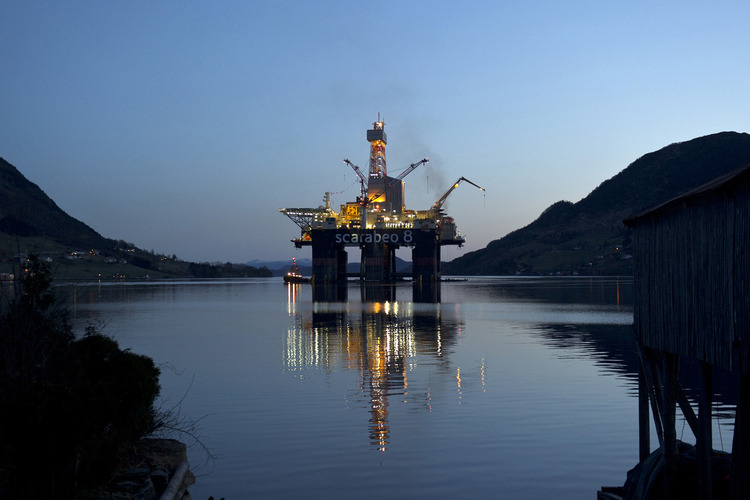
As the oil and gas community descends on Stavanger for this year’s Offshore Northern Seas (ONS) conference, those coming from UK could be forgiven for feeling a stab of jealousy at the comparative health of the industry in Norway. In 2014, Norway generated more than double the revenue the UK did during the same period. Indeed, official government statistics show that the UK has generated $470 billion in revenues whilst Norway has generated $1,197 billion since 1971 in real terms.
Both countries have equivalent geology and a similar resource base, and both produce similar amounts of hydrocarbons. So why then has Norway generated much greater revenues than the UK?
The answer to this may lie partly in the different approaches taken by both countries’ governments since the discovery of oil in the North Sea in the 1960s. The most striking difference between the nations is the active role that Norway’s government plays in the industry through its ownership of offshore companies. Indeed, the declared primary function of all Norwegian state participation in the petroleum sector is to ensure that maximum value creation is achieved and delivered to Norway. Oil in the country is primarily controlled by Statoil, a majority state-owned company that controls around 70% of Norway’s petroleum production. Like many operators, a low oil price has been a significant challenge for Statoil. However, the Norwegian government recently announced a plan to stimulate the industry by awarding new oil and gas licences next year. This is allied with a tax reimbursement for exploration expenses, which significantly reduces the financial burden of operators and makes exploration dramatically more attractive. Such an activist role by a government in a specific industry can be potentially troublesome but, thus far, the Norwegian government’s record at steering the industry has been consistently positive.
This relatively heavy state involvement has led to a regulatory environment that facilitates fast and agile decision-making through the country’s four main national regulatory bodies. Historically, regulation in the UK has typically been a much less straight-forward process. However, the establishment of the Oil & Gas Authority (OGA) has caused many to hope that the UK offshore industry will enjoy greater regulatory clarity once the new regulator is able to make full use of its powers once it becomes independent in the Autumn.
The experience of Norway also suggests that there is an active role for government to play in the North Sea. Whilst full nationalisation of infrastructure would be both undesirable and politically impossible, the UK government could play a greater role by providing support to pipelines where the economics don’t other add up for operators.
Throughout recent decades, Norway has benefited from a significant amount of financial stability, which is in part an unintended response to steps taken in the 1970s to reduce distorting economic effects of then recent oil discoveries. Norway was then suffering from ‘Dutch disease’, which describes the effect of an influx of foreign investment to one booming sector (such as petrochemicals) substantially raising the value of a currency, which serves to make a country’s exports uncompetitive, which in turn has a deleterious effect on its overall economy. To combat this, the Norwegian government limited the volume of profits that went back into the country’s economy, and instead invested funds in a sovereign wealth fund intended for the benefit of future generations. The net result of this is a buffer that offers a degree of protection for Norway’s national producers against wider macroeconomic pressures (in stark contrast to the UKCS’ largely shareholder owned operators).
Norway has also benefitted from a relatively stable fiscal regime. The country’s tax regime has seen little change in over the past two decades, which has provided investors with the stability required to make long-term investment decisions. In comparison, the government spent many years tinkering with the system, introducing increasingly questionable rates and wide-ranging incentives. This has often had dramatic knock-on effects such as in 2012, when a third major tax rise in a decade sent shares of UK E&P companies tumbling.
If the UK government does want to take proactive measures to boost the industry, it would do well to emulate the incentives that Norway provides for exploration drilling. In the current environment of low activity and relatively cheap drilling rigs, government incentivisation of E&P would give the industry a much needed uplift, and could provide bountiful returns if the oil price does return to its previously high level.
However, there remain instances in which Norway can learn from the UK. In particular, the Norwegian continental shelf remains relatively unexplored, with little effort made to locate and unlock smaller fields. Meanwhile, economic necessity has meant that operators in the UK have long looked to locate and exploit smaller fields wherever possible. This has resulted in the UK developing technical and managerial expertise that could be of great use to Norwegian operators.
Ultimately, Norway’s success boils down to a combination of luck, long-term thinking and good governance. Whether a consequence of the state’s involvement with operators, or simply a coincidence, Norway has largely been blessed with a succession of governments who are able to judge when to take an active role in the industry, and when to step back and avoid the temptation to tinker. The establishment of the OGA as an independent regular is a positive step, and shows how UK operators can collaborate better for the benefit of the whole industry. Whether the oil price rebounds or remains at its current low levels, operators and the UK government must be mindful that the future of the UKCS depends on their collective collaboration.
Chris Freeman is a partner and director of Field Development at io oil & gas consulting.
Recommended for you
